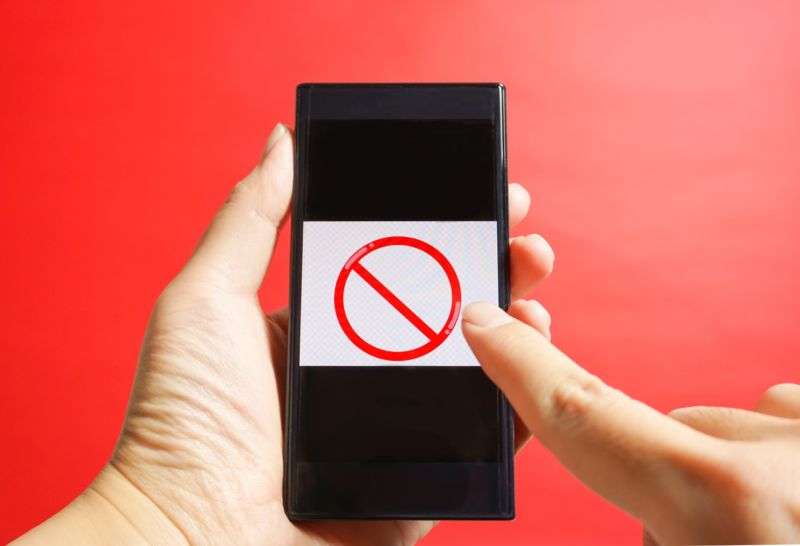
T-Mobile lied to the FCC about its 4G coverage, small carriers say

T-Mobile lied to the Federal Communications Commission about the extent of its 4G LTE coverage, according to a trade group that represents rural wireless providers.
T-Mobile claimed—under penalty of perjury—to have coverage in areas where it hadn’t yet installed 4G equipment, the Rural Wireless Association (RWA) said in an FCC filing Monday. The same group previously reported to the FCC that Verizon lied about its 4G coverage, leading to the FCC starting an investigation and announcing that at least one carrier exaggerated its 4G coverage.
Inaccurate coverage maps could make it difficult for rural carriers to get money from the Mobility Fund, a government fund intended to build networks in unserved areas. The FCC last year required Verizon and other carriers to file maps and data indicating their current 4G LTE coverage with speeds of at least 5Mbps. Carriers must provide “a certification, under penalty of perjury, by a qualified engineer that the propagation maps and model details reflect the filer’s coverage as of the generation date of the map in accordance with all other parameters,” the FCC order said.
“Persons making willful false statements in any part of a speed data submission may be subject to punishment by fine or imprisonment,” the FCC said in a public notice.
This data is supposed to help the FCC determine where to distribute up to $4.5 billion in Mobility Fund money over the next 10 years. But the RWA says that inaccurate Verizon and T-Mobile coverage maps could prevent its members from getting network construction money in parts of the country that lack 4G service.
Speed tests reveal T-Mobile shortfalls
As part of the FCC’s Mobility Fund challenge process, RWA members have conducted millions of speed tests at their own expense to determine whether the major carriers’ coverage claims are correct. Those speed tests previously found that Verizon didn’t cover the entire Oklahoma Panhandle as the carrier claimed. More recent tests found similar results for T-Mobile, the RWA said in its new filing:
The record is replete with filings, by RWA and others, detailing concerns about overstated Verizon coverage. In addition, there are also concerns about overstated coverage by T-Mobile. RWA members discovered through the challenge process that—in many areas—T-Mobile projected its future 4G LTE coverage and reported that coverage to the Commission ahead of or by the January 4, 2018 deadline instead of the coverage it had in place by the January 4, 2018 deadline. RWA members noted that the coverage data submitted by the January 4, 2018 deadline had to be certified as accurate under penalty of perjury.
As RWA members continued taking speed tests, “they witnessed coverage go up where there had previously been none the month (or even week) before,” the RWA filing said. “Also, in many areas where T-Mobile reported coverage, cell sites supposed to be providing that purported coverage had not been even placed into operation. Further, in many of the areas where T-Mobile has claimed coverage, the carrier is using satellite backhaul. In these locations, backhaul speed and latency limitations make hitting speeds of 5Mbps down impossible—regardless of other network inputs.”
RWA members provide mobile access and fixed wireless Internet services, “and support the subscribers of larger carriers while roaming in their rural service areas,” the group says. Each RWA member serves fewer than 100,000 subscribers.
More data on Verizon
RWA also provided the FCC with this update on its members’ Verizon speed tests:
RWA member Panhandle Telecommunication Systems, Inc. drove 124,421 miles (a distance nearly equivalent to driving 5 times around the Earth) during the challenge process, and took a total of 3,605,517 speed tests. Of the total test points collected, 3,232,612 (89.7 percent) tested below 5Mbps download speed or did not register 4G LTE service at all. Panhandle’s Verizon speed test data collection covered a total of 2,060,883,573 test points. Of the total test points collected, 1,728,794 (83.9 percent) tested below 5Mbps download speed or did not register 4G LTE service at all on Verizon-designated handsets.
Sagebrush Cellular, Inc. collected 2,684,667 test points, and found that 99.09 percent of those test points either tested below 5Mbps download speed or did not register 4G LTE service at all. Pine Belt Cellular, Inc. collected 1,485,324 test points, and found that 82.9 percent of those test points either tested below 5 Mbps download speed or did not register 4G LTE service at all.
We contacted T-Mobile and Verizon about the RWA’s latest findings and will update this story if we get responses.
FCC Chairman Ajit Pai said last week that “A preliminary review of speed test data submitted through the challenge process suggested significant violations of the Commission’s rules,” but didn’t say which carrier or carriers lied about their coverage.
The FCC said its investigation is focusing on “whether one or more major carriers violated the Mobility Fund Phase II (MF-II) reverse auction’s mapping rules and submitted incorrect coverage maps.” The FCC has suspended its mapping challenge process pending the results of the investigation.




